As Google search has grown into the Godzilla it is today, more internet users are looking for alternative search engines.
The endless Google ads, personal data harvesting, and feeling that Big Brother is always watching, have become a tad concerning.
But can you ditch the most popular search engine in the world and find a Google alternative that values your privacy and still gives you the results you want?
In this post, we’ll reveal the 16 best privacy-focused search engines. Now, some of these options you may have heard of, and several may be brand new.
Either way, I’m sure you’ll find a platform that delivers the search results you need with the privacy you’ve always wanted.
Let’s dive in.
1. DuckDuckGo
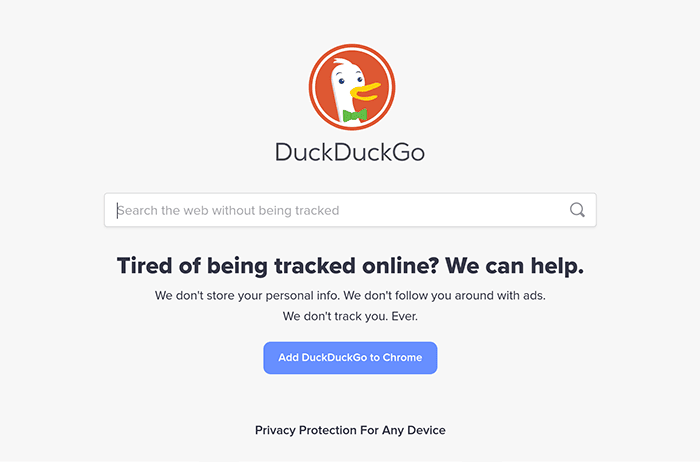
One of the most popular alternative search engines on this list, DuckDuckGo fancies itself as the anti-Google by favoring user privacy.
Search results are pulled from over 400 sources, including DuckDuckGo’s own crawler (DuckDuckBot), crowdsourced sites like Wikipedia, and partners like Microsoft Bing.
None of your search results will come from Google.
How DuckDuckGo Values Your Privacy
Your search history is still saved but done in a way where you aren’t identified. Tracking cookies and other personal identifiers, like IP addresses, aren’t stored.
However, DuckDuckGo is based in the U.S., and the U.S. is a member of the “Five Eyes” intelligence alliance. The member countries in this alliance – the U.S., U.K., Australia, Canada, and New Zealand – collect and share mass surveillance data from internet companies for national security interests.
That said, DuckDuckGo is still a much more secure alternative to Google. But if you’re looking to maximize your privacy, then use DDG — or any other search engine on this list – with a VPN.
Feature Highlight

Using DuckDuckGo’s “Bangs” feature, you can directly search other sites. For example, typing “!uns” and a keyword (e.g., !uns landscape) takes you directly to all the images Unsplash has for landscapes. This can be a quick way to find images for your blog posts.
2. Brave
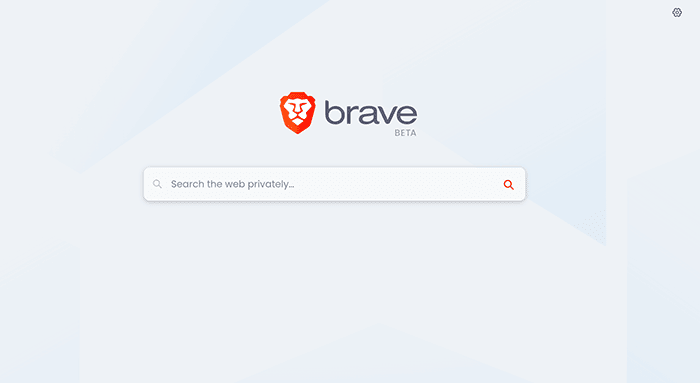
In October of 2021, Brave Search left Google behind in favor of its own index. They now return most of their own search results, with a small portion coming from anonymous API calls to third parties.
Search results are similar to Google’s as long as you leave on the Anonymous Local Results setting. If you search “best burger” with this setting on, it anonymously uses your IP address to pull results from your area. With the setting off, you’ll get results from all over.
How Brave Values Your Privacy
Brave doesn’t track your searches, clicks, or personal data. It’s easily one of the most private search engines available.
Feature Highlight

Even though you’re using an alternative search engine, Brave lets you jump to other options. As you scroll results you’ll see 3 bubbles for Google, Bing, and Mojeek. Click one to see web page search results there.
3. Swisscows
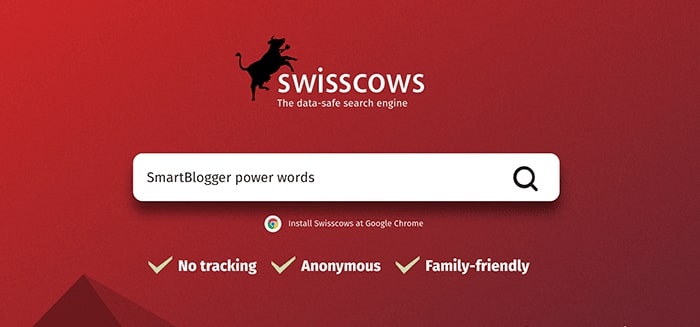
Based in Switzerland, Swisscows offers its own indexing for searches done in German. All other search results come from Bing, with whom they have an exclusive cooperation agreement.
Swisscows is also family-friendly. They don’t index or display explicit content, making it a great search engine for kids.
How Swisscows Values Your Privacy
No data is stored. No search history is saved. Swisscows guarantees absolute anonymity. The ads you see are based on your search, and not targeted to you specifically.
Feature Highlight
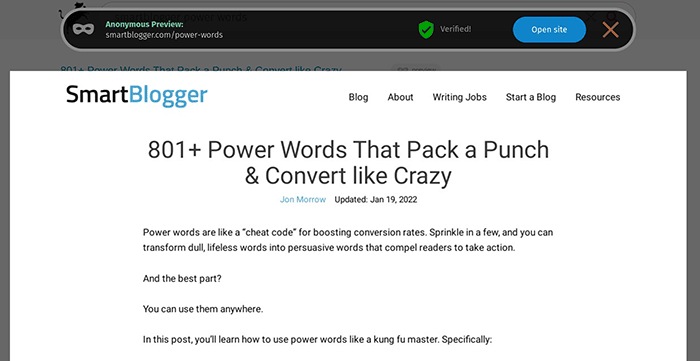
Each search result has a “preview” button. Click it for an anonymous preview of the page. This allows you to scroll any page without leaving your list of results.
4. OneSearch
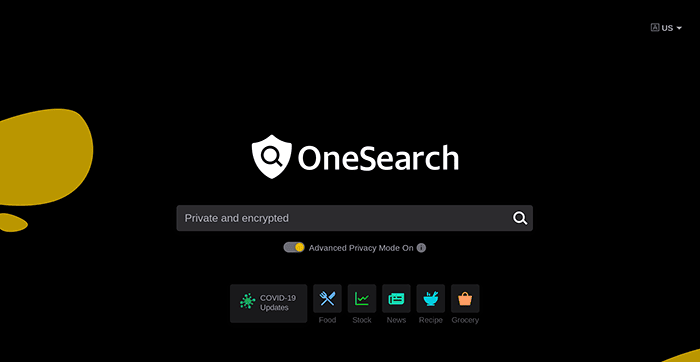
One of the newer alternative search engines, OneSearch was launched in early 2020 by Verizon Media. With their parent company being powered by Bing, your search results come from there too.
How OneSearch Values Your Privacy
Like others in our list, OneSearch doesn’t use cookies to track you or your personal data. Your user profile is never shared, and ads are never targeted or retargeted. However, depending on your search query, you may get text ads.
When searching, your IP address is processed to give “imprecise location data” for more localized results.
Feature Highlight

Enabling “Advanced Privacy Mode” encrypts search terms and URLs. With this data encrypted, your search habits are masked from third parties, giving you an extra layer of privacy protection.
5. MetaGer

MetaGer is run by a nonprofit organization in Germany and powers its servers on renewable energy. As a metasearch engine, search results come from Scopia, Bing, and OneNewspage.
Their privacy policy is very transparent and one the easiest to read I’ve ever seen. You don’t need a law degree to understand it.
How MetaGer Values Your Privacy
When performing a search, MetaGer uses an anonymizing proxy to make your activity untraceable. However, they do store your full IP address and a timestamp for 96 hours before deleting it.
Additionally, if you fill out their contact form, they will keep your name and email address for up to 2 months. This information is not shared outside their organization.
Feature Highlight

MetaGer lets you customize a range of search features to better match your preferences. For example, you can switch on/off search engines, create permanent search filters, and add blacklisted sites you don’t want in your search results.
6. Mojeek
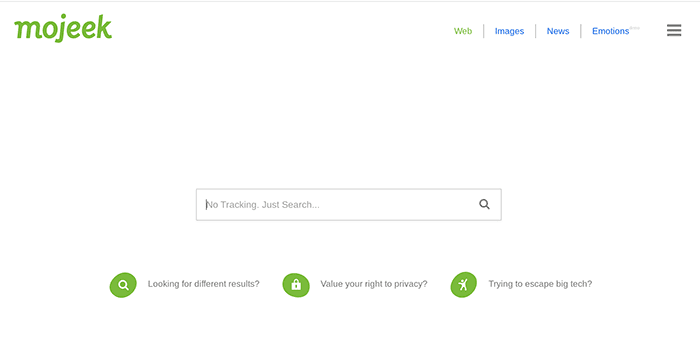
With its own index, Mojeek crawls over 4 billion pages to give you impartial results from the world wide web. Conversely, Bing indexes well over 8 billion pages. So your results may be limited.
How Mojeek Values Your Privacy
With the first-ever no tracking policy from a search engine, one could argue Mojeek has been fighting for privacy longer than anyone. With Mojeek, your personal data is never sold or shared. However, they are based in the U.K. and are also a part of the Five Eyes alliance.
Feature Highlight
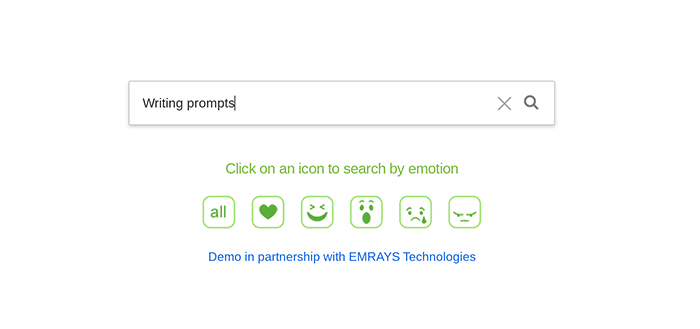
Like many search engines, you can choose to search the web, images, or news. But Mojeek has added the ability to search by emotion. It’s a fun feature, but the relevancy and usefulness of my search results varied. Still, it’s worth checking out.
7. Qwant
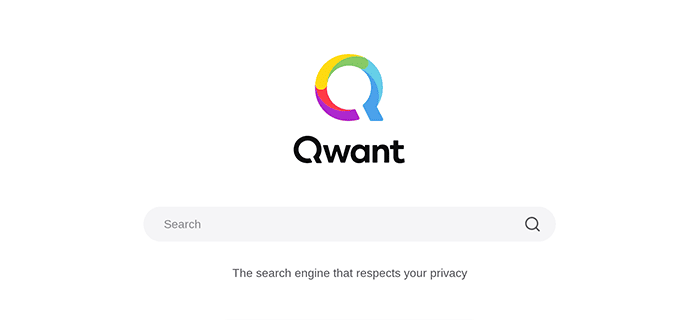
Qwant is based in Paris and offers a combination of Bing search results with its own index. Since Qwant doesn’t your geolocation, you won’t get local results unless you type your city in the search.
How Quant Values Your Privacy
Ads aren’t targeted and personal data isn’t stored, since they don’t know who you are. Search history isn’t saved either, but they do store your IP address for fraud detection purposes.
Qwant is also part of the Nine Eyes Intelligence alliance, a special arrangement between the “Five Eyes” countries and France, Denmark, Norway, and the Netherlands.
Like the Five Eyes alliance, “Nine Eyes” countries share signals intelligence. For the average user who simply wants a more private browsing experience – or who’s uneasy with targeted ads – the “Five Eyes” and “Nine Eyes” are of little concern. That said, controversies surrounding these alliances do exist, and are hot topics among privacy buffs – but that’s beyond the scope of this post.
Feature Highlight
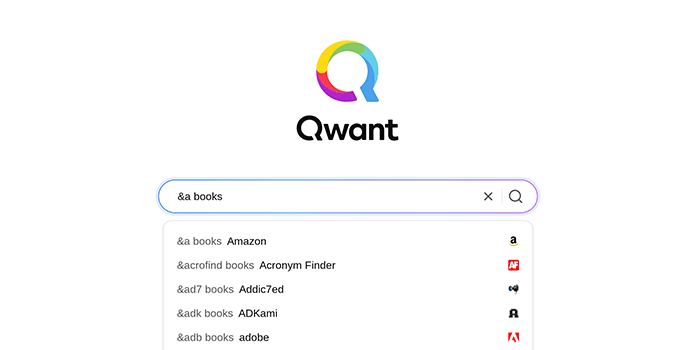
Just like Bangs from DuckDuckGo, Qwant gives you a shortcut to searching some of your other favorite sites by starting your search with “&”.
8. Ecosia

Google performs over 3.5 billion searches per day and creates about 40% of the entire internet’s carbon footprint. While they’ve taken measures to offset that, you could just use Ecosia instead.
Ecosia servers run on solar power and they donate 80% of their profits to planting new trees. They claim to be a carbon-negative operation, with each web search removing 1kg of CO2 from the air.
How Ecosia Values Your Privacy
The tradeoff for helping the planet is a little less privacy than other alternative search engines. Ecosia doesn’t sell your data, and your searches are all encrypted. But they do collect personal information and anonymize it within a week.
You also have the option to choose “Do not track” in your settings.
Feature Highlight
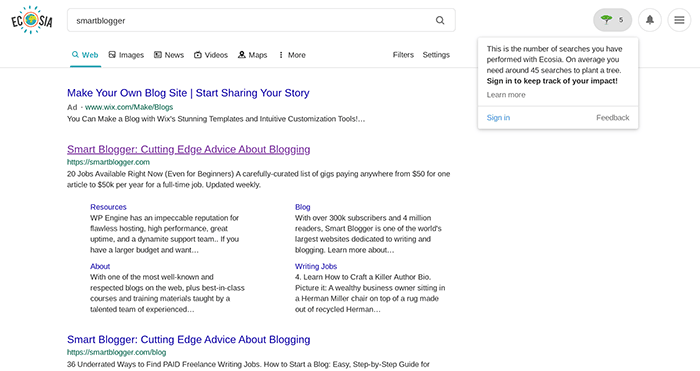
As long as you don’t clear your browser’s cookies, Ecosia counts and displays the total number of searches you performed on its platform. About every 45 searches are enough to plant a tree.
9. StartPage
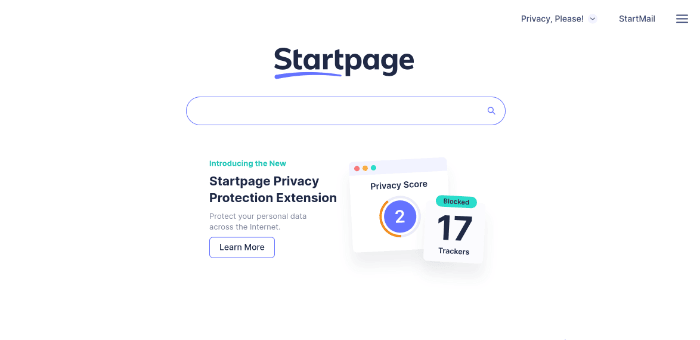
With StartPage you can get Google results without using Google. Results come from the biggest search engine in the world, but the query is anonymized first. In other words, you get Google without giving them any of your data.
How StartPage Values Your Privacy
No cookies are used, no targeting, and nothing saved. You are completely anonymous. Being based in the Netherlands, StartPage is subject to inquiries from the Nine Eyes alliance. But they don’t have any data, so there’s nothing to send if they’re asked.
Feature Highlight

When you click a link in your search results, you leave StarPage’s protection. But you can click their “Anonymous View” – a free, proprietary browsing feature that functions like a baked-in VPN – to see the page anonymously.
10. SearX
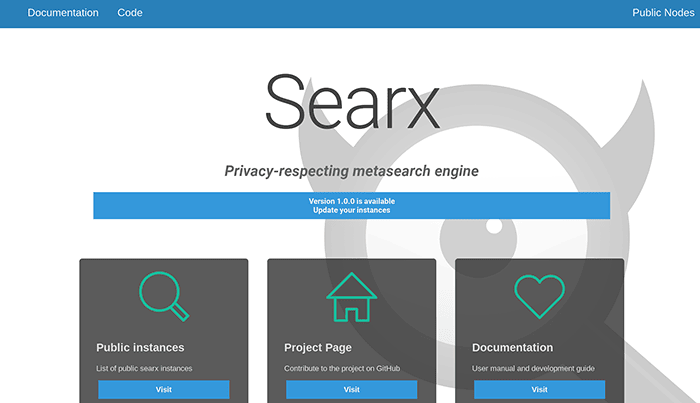
SearX is an alternative search engine for the more technically advanced. As a metasearch engine, it pulls from over 80 other search engines.
To use, go to their list of public nodes and choose an instance to run your search.
How SearX Values Your Privacy
Links are provided in a cached or proxied format to prevent users from getting tracked. You essentially get results without going to the real pages of the sites.
Feature Highlight
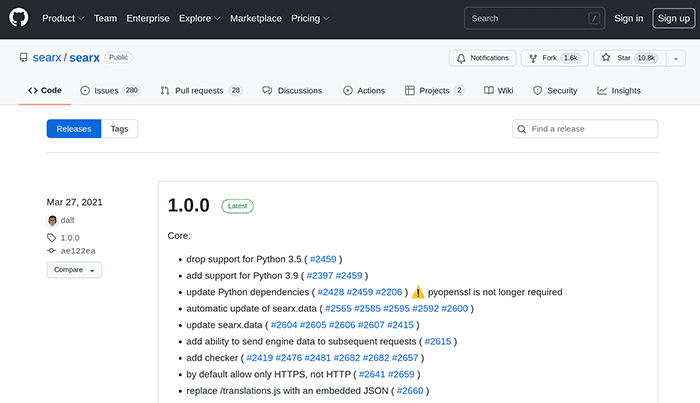
Developers can download and install their own instances of SearX. All code and documentation can be found on GitHub.
11. Gibiru
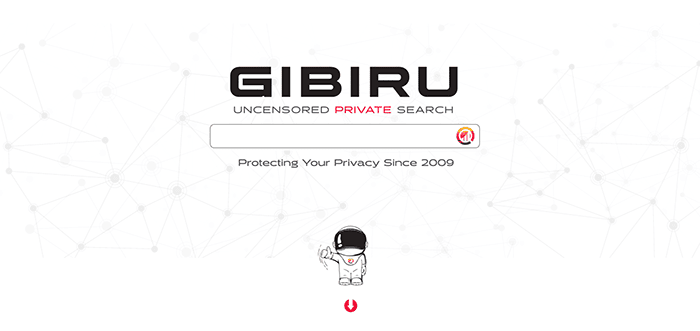
Gibiru uses a modified version of Google’s algorithm, giving you similar results without all the tracking and ad targeting.
How Gibiru Values Your Privacy
With zero retargeting, and no collecting or selling of your personal data, your web browsing is done with 256-bit encryption.
Feature Highlight

Gibiru offers a tab for “censored content” that will give you results normally filtered out.
12. Disconnect
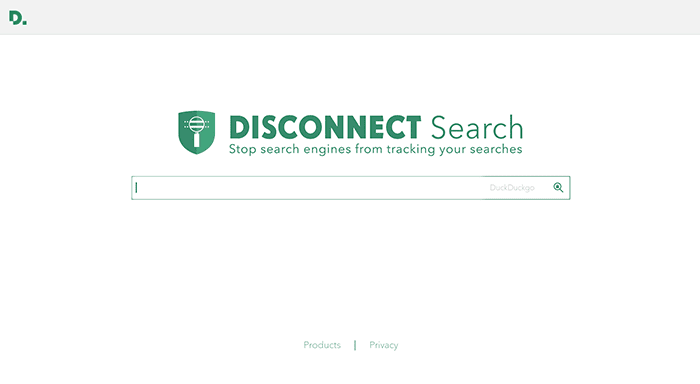
In addition to their free search using DuckDuckGo, Disconnect Search offers 5 different products that are free, freemium, and paid. Each comes with increasing levels of protection and customization.
Their VPN service allows you to search anonymously while blocking malware and trackers. Since you aren’t tracked by third parties, they boast 44% faster page load times.
How Disconnect Values Your Privacy
Ultimate user privacy comes from using a VPN like Disconnect. Your personal data isn’t sold or shared and you are searching anonymously.
Feature Highlight

With their “pay what you want” model, you can add the Disconnect tool as a browser extension for whatever you feel it’s worth.
13. Neeva

Sick of seeing ads every time you search? Neeva took care of that. They are 100% ad-free. To earn money, they offer a monthly premium membership where users can add personalization features, privacy tools, and other benefits.
How Neeva Values Your Privacy
While they collect a bit of info upon creating an account, it’s never shared or sold for the purpose of selling products. It’s also deleted after 90 days.
If you choose to connect with an external data source like Dropbox, Office 365, or G-Suite, that information is collected to offer more personalized results.
Feature Highlight
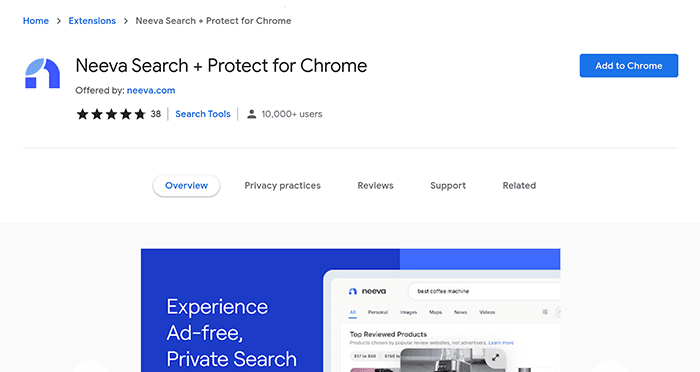
Neeva operates as a browser extension and iOS app (an Android app is currently in development). And while you can search straight from their page, having the power of Neeva baked into your browser is pretty darn convenient.
14. Peekier
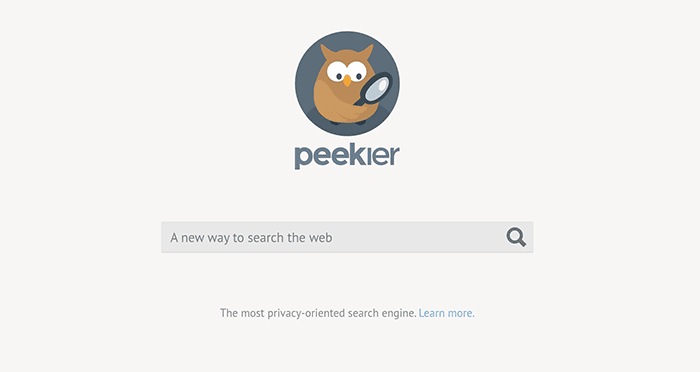
Peekier provides a visual preview of every search result. Clicking on a preview page enlarges it, allowing you to scroll through a sneak peek of the page. And if a page’s preview piques your interest, you can click the link at the top of the preview, bringing you to the actual website.
How Peekier Values Your Privacy
When using Peekier, no requests to other websites or domains are made. They don’t use Google Analytics, social media buttons, or any other service that collects user data.
One exception is embedded video links. But that setting is disabled by default.
Feature Highlight
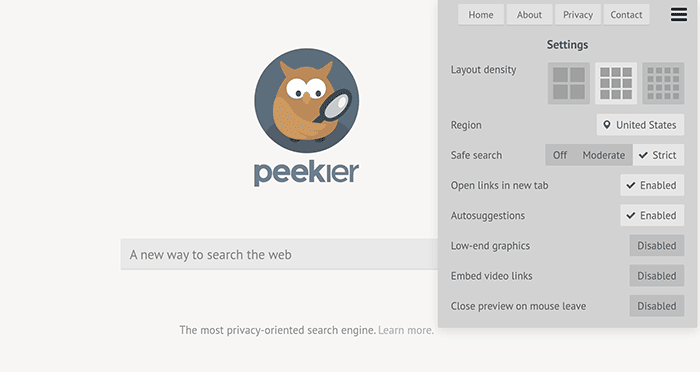
Peekier’s menu gives you quick access to change the grid layout density on the fly. You can also adjust other settings like your region or safe search strictness.
15. Presearch
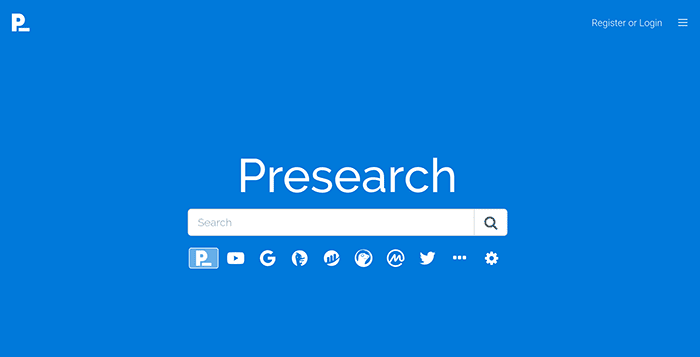
Want to earn crypto while you search? Presearch is a decentralized, community-driven search engine that protects your privacy and rewards you when you search.
Running on node servers, this alternative search engine operates more like a public utility for users rather than shareholders.
Users earn Presearch (PRE) reward tokens when searching, by operating a node, or referring others to join. PRE tokens are used for keyword staking (advertising) and node staking (operating nodes).
Tokens can also be transferred to your crypto wallet and sold on some exchanges.
How Presearch Values Your Privacy
Presearch protects your privacy because it doesn’t track you or store searches. All web searches are handled by a decentralized network of node servers processing anonymized queries.
Feature Highlight
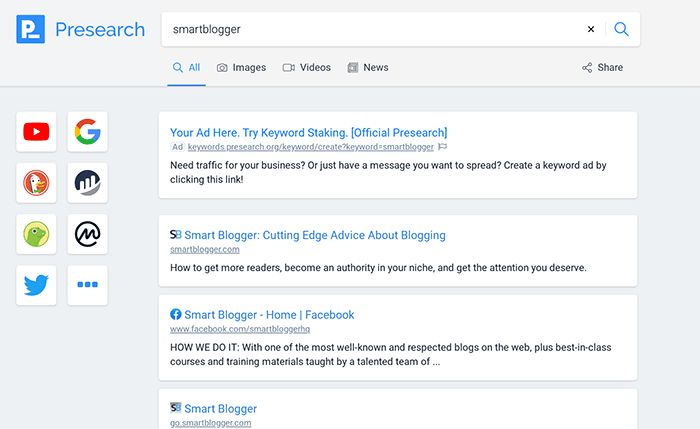
When you begin your search, or on the results page, you can choose one of many search engines instead of Presearch by clicking the corresponding button.
16. Private.sh
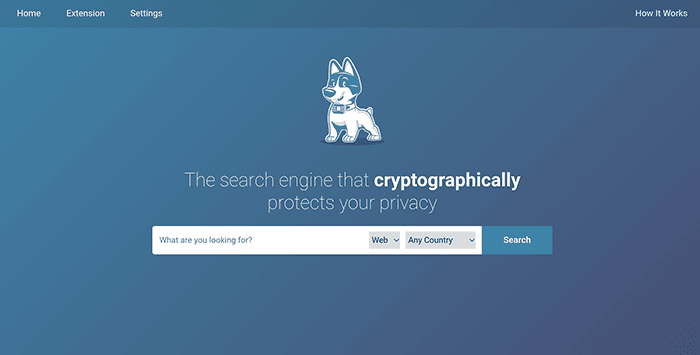
Private.sh is a bit slower to return search queries, but that’s because of the encryption work it’s doing.
Web searches are put through 5 steps before you see results:
- Your search is encrypted locally on your computer
- Public IP is stripped
- The search provider receives the encrypted search term, decrypts it, then finds the search results
- Encrypted results are sent back through the Private.sh proxy
- Results are decrypted locally on your computer
How Private.sh Values Your Privacy
Because you never communicate with the search provider directly, all your information is completely safe and hidden.
Feature Highlight
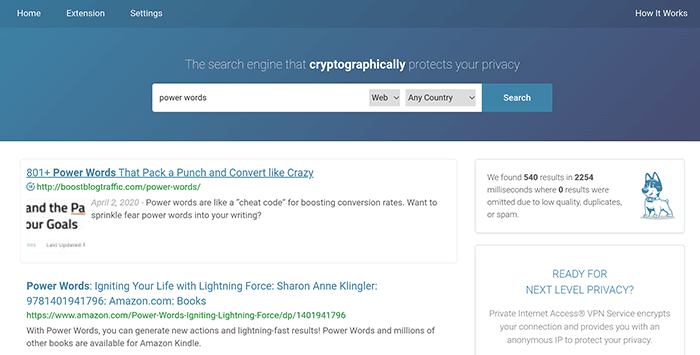
After running a search, a box appears to show you exactly how many results were returned and if any were omitted because of low quality, duplicates, or spam.
Ready for More Privacy with Alternative Search Engines?
By this point, Google has enough of our user data. With this variety of alternative search engines available on the world wide web today there’s no reason to give them anymore.
Whether you want to use a metasearch engine, query anonymously, or earn some crypto while you search, there’s an option for you.
You now have a list of Google alternatives to find the best search engine for you.



